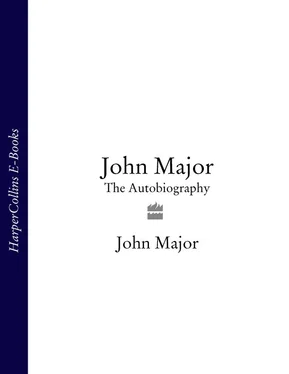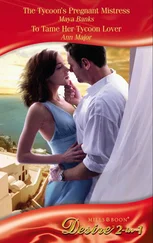And this support mattered. A long incumbency attracts a great deal of loyalty, and if Sir David had muttered uncomplimentary remarks, or hinted at criticisms, even in private, they would have been voiced abroad and caused difficulties. It is human nature to cast doubt over one’s successor to bolster one’s own sense of experienced superiority, but David never did so. Over the years I found in him a wise adviser and a political friend and confidant whom I could trust completely and who never let me down. In 1998, in his ninetieth year, David, now Lord Renton, was still active in the House of Lords, and I had the pleasure of speaking at several of the events to mark his landmark birthday. On one occasion Margaret Thatcher and I both spoke at Lincoln’s Inn. Margaret, as Margaret Roberts, had sought, and received, David’s help as a young barrister.
David’s joie de vivre never dimmed. In his eighties I called on him one Sunday lunchtime to find him in tennis shorts shaking his head sadly.
‘I’ve been playing with Jeffrey Archer,’ he said, ‘and, you know, his game’s going off. And he’s so young.’ Jeffrey was in his late forties.
Other senior members of the Huntingdonshire Conservative Association welcomed us warmly. Maurice and Doris Twydell and Tony Finch-Knightley introduced us to ‘old’ Huntingdon, while Mike and Beryl Robertson – the best judges of how the vote was going locally – did the same for us in the overspill estates.
Archie Gray, a retired naval commander, was chairman, and his writ ran. But, like so many Conservative associations, Huntingdonshire was largely an amazonian enterprise. Many of the guiding forces were women. The President, Mrs Jo Johnson, was a Scot, one of many active in the association. Jo was one of the wisest ladies I ever knew, and a huge support. She was no fair-weather friend. Nor was Emily Blatch, later Baroness Blatch and a senior member of my government, or Olive Macaulay, whom I later gave away in her marriage to Eric Baddeley. As for Anne Foard, she placed a bet at a hundred to one that I would be Chancellor of the Exchequer within ten calendar years of my election to Parliament – and she won.
The farmers were prominent in the constituency. Roger Juggins took me in hand and explained farming. The Juggins family had been in Stukeley for centuries, and had a political commitment to match the Cecils or the Churchills. Ted Smith added to my farming education, as did Joe Pickard, who once remarked, ‘They tell us you know nothing about farming, but Sir David tells us you’re all right.’ Sir David said I was all right! I needed no other endorsement for the farming community.
Old Mr Skinner introduced me to pigs. He loved his pigs, and no luxury was too good for them. With the wind behind them the pigs could make their presence known over a wide area, but no one complained. They all liked Mr Skinner and his pig farm was state-of-the-art.
The non-farmers were just as helpful. Mike Bloomfield, Ivor Ross Roberts and Mike Harford, all successful businessmen, introduced me to the business community and, like many others in Huntingdon, became firm friends.
Andrew Thomson, my agent, was another Scot. Sometimes controversial, he was determined to bring in the new voters in the overspill areas outside Huntingdon and Peterborough, and worked me mercilessly to do so. Meet people. Meet people. Meet people. That was his motto. And it worked. I knew the constituency and it came to know me, and it was a happy relationship. Some MPs see their constituency only as a vehicle to get into Parliament, and something of a cross to be borne. I was lucky. I never did. From the very first, Huntingdon became a home, the source of many friends and a political fortress.
I left nothing to chance. Over the months I came to know Rotary Clubs, business groups, charities, schools, tenant groups, sports clubs and everything else that was active in the constituency. I knew the election could come at any time. Jim Callaghan, the Prime Minister, had formed a Lib – Lab pact to stay in government, but it looked very fragile. Each morning as I commuted from Huntingdon to King’s Cross I wondered how long they’d last. And returning home each evening I hoped it wouldn’t be long.
But stagger on they did. And on. And on. An election looked inevitable in October 1978 when Jim Callaghan announced that he was making a prime ministerial broadcast, but all he said of note was that there would be no election until the spring. After two years’ hard slog as the prospective candidate for Huntingdonshire, and seven years since my first candidacy at St Pancras North, a further delay was dispiriting. A long, hard winter lay ahead, but it was longer and harder for the Labour government as the Winter of Discontent set in.
Eventually, a dramatic defeat by one vote on a Confidence Motion brought down the Callaghan government on 28 March, and the following day the election was called. It was the best birthday present I ever received.
The Huntingdonshire machine swung into action. It was a Rolls-Royce operation compared to anything I had experienced before. By day I canvassed, visited pubs and clubs, market squares, railway stations and retirement homes, gave interviews and filled every moment with activity. Each evening I held three public meetings at 7 p.m., 8 p.m. and 9 p.m. in different villages. Almost all were packed out, with standing room only, and the reception was almost always very friendly. There was little opposition, but I was leaving nothing to chance. The Liberal candidate was Major Dennis Rowe, a well-known local figure, and the Labour candidate a young man named Julian Fulbrook. Years later, in the Blair campaign of 1997, I saw Fulbrook trotted out to praise Labour as if he was a neutral who had fallen in love with the New Labour Party. The age of the spin doctor had arrived.
A few hecklers followed me around. One, a Labour supporter, was a persistent nuisance, and one evening I responded pretty sharply to his comments. He rose from his seat, snorted disapproval and stalked out in high dudgeon. Unfortunately for him he was so intent on registering his disgust that he walked into the broom cupboard rather than out into the night air. The audience watched fascinated, then burst into laughter and applause as he emerged. Red-faced and embarrassed, he slunk out and did not reappear. I missed him – he had provided many a light-hearted moment during the campaign.
Election day, 3 May 1979, dawned crisp and bright. It looked as though we were set to win nationally, although, curious to relate today, many wondered if Britain really would elect a woman as prime minister. But I was confident locally, and Andrew Thomson was super-confident. I drove around the huge constituency with Archie Gray, starting in the south and visiting polling stations and committee rooms. Norma and Andrew Thomson performed a similar odyssey, starting from the north. We planned to meet in the middle.
As Archie and I reached the village of Brampton, I was astounded to see long queues of RAF personnel from the local air station patiently waiting to vote. Archie purred. ‘Look at that. They’re not going to put a Labour government back in office. You’re going to win, my boy.’ So saying, he produced a bottle of champagne.
‘A little early,’ he went on, ‘but we have something to celebrate.’
We pulled into a layby and cheerily drank half the bottle. Thus fortified we pressed on.
At each committee room the mood was buoyant. A high turnout, a Conservative lead and, in some areas, very little sign of opposition. It was a joyous day of pleasurable anticipation and growing excitement. As the polls closed I went to the club at ‘The Views’, the association headquarters, where Emily Blatch had some more news.
‘I’ve done a straw poll,’ she said, ‘outside a few polling stations. Based on that, you’ve romped home. I think you’ve won by twenty thousand!’
Читать дальше












